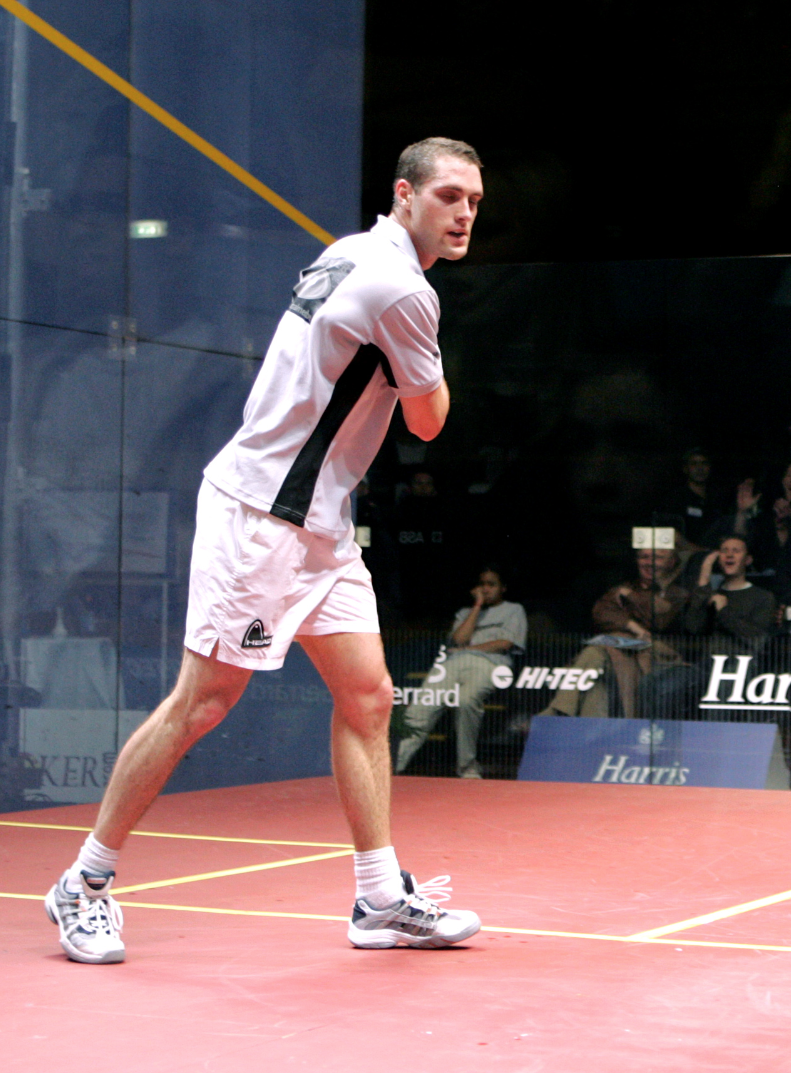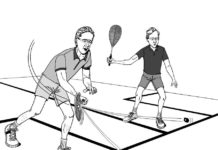
By Rod Symington, WSF Referees and Rules Committee
Right now, all over the USA—and, in fact, all over the world—squash players are throwing their rackets in disgust, dissent, or protest. And all over the world their actions are being greeted by silence. Referees are watching—and saying nothing.
That silence means: It is all right to throw your racket on the squash court. And those players will do it again—and again—because they have not been called to task and given the correct message. It is not all right to throw your racket on the squash court, and if you do so, you are breaking the Rules—just as if you had hit the tin or failed to clear out of your opponent’s way.
The Rules of Squash contain 20 rules, and they are all of equal value. You may not pick and choose which Rule you wish to follow and which to ignore; you must observe them all. So Rule 17 (Conduct on Court) is of equal value with Rule 4 (The Serve) and Rule 12 (Interference). Thus if you commit an offense under Rule 17, you must be penalized—that is what the Rule says.
So it is the duty of the Referee to penalize a player who commits an offense—and a player who throws the racket has definitely committed an offense.
It is always difficult to do something for the first time, so it is understandable that referees are reluctant to take that first step and utter the words “Conduct Warning.” It’s almost as difficult as proposing marriage.
A couple of years ago I was assessing referees at the German Championships, and I was seated right behind the Match Referee. One of the players was arguing almost every call, but the Referee said nothing. In the interval between games I leaned forward and said to the Referee: “You cannot allow this player to argue all the time; you must penalize her.”
When the next game began, the argumentative player was soon arguing again—and the Referee kept silent. So, as she argued, I kicked him in the backside—and immediately he said: “Conduct Warning for dissent.” The player was visibly shocked (in Germany a Conduct Warning comes with a 30 Euro fine); but after that there were no more problems for the rest of the match.
There is a clear lesson here: take action early, and the players get the clear message that poor conduct will not be tolerated. The result is a much quieter and more enjoyable match.
When I debrief referees after a match and ask them why they took no action when a player misbehaved, they frequently say: “I was afraid that if I said something, the situation might get worse.” I invariably reply: “Well, you didn’t—and it did.”
There is only one valid stance vis-à-vis bad conduct by a player: zero tolerance. As soon as a player shows dissent to a decision, give a firm, but polite warning. If it continues, give a Conduct Warning. If a player drops or throws the racket in dissent, or anger, or frustration, give a Conduct Warning immediately. Second offenses merit a Conduct Stroke. (And only the psychopaths will not heed the clear message here.)
Take action early, let nothing go, do not keep silent. Follow this advice and you will be amazed how easy life becomes.





